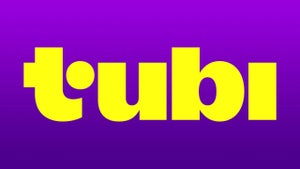How To
Best questions to ask before leaving your next job interview

- January 3, 2019
- Updated: July 2, 2025 at 5:34 AM


Interviews are more than an opportunity to dazzle a new potential employer with a pristine resume and your quick wits, it’s a two-way street.
While the interviewer is there to ask questions that help them understand you and what you bring to the table, you need to be prepared to ask the questions that will help you understand if the job is right for you.
That said, many of us dread that final interview question — “so, do you have any questions for me?”
The answer should always be “yes,” regardless of the position or how well your interviewer explained the role. It’s one of those weird unwritten rules—like how you have to say “good” or “fine” anytime someone asks how you’re doing.
Recruiter Angela Smith told The Muse that if an applicant doesn’t have any questions, it’s a red flag. She says it makes her think that they either didn’t do their research or don’t care whether they get the job.
Additionally, asking smart questions can give you a leg up on the competition. This is a chance to show that you’re smart and engaged — as well as help you identify red flags of your own and get a sense of what your new daily routine might look like.
Here are some high-level questions that can help you wow your interviewer and clarify some things that’ll help you make a decision, too.
Best questions to ask a prospective employer in a job interview

“Describe the perfect candidate for this role”
This question can uncover some valuable information about the role that you might not find in the job description. You might learn more about which skills the company values most, how the ideal candidate fits into the culture, and potential expectations.
“What are the day-to-day responsibilities of this job?”
This question is an important one to ask if the description wasn’t 100% clear. More so if you’ll be working with a small team or the company itself is small — as in these cases, there may be more cross-functionality than you were expecting.
Additionally, it’s worth pointing out that this question isn’t appropriate for every role. A marketing manager or a consultant may have responsibilities that look different from company to company.
In a sales position, this may make it seem like you don’t know what you’re doing—as chances are, you’ll be connecting with prospects and clients day to day. In this case, a more appropriate question might be something like, “How much time do sales reps spend in the field or traveling vs. in the office?”

How to use social media to find your next job
Read Now ►“What is the company culture like?”
A question like this is a good one, especially if you’re concerned about turnover or the company’s approach to creating growth opportunities for their employees. The interviewer, of course, will be trying to make the position sound as appealing as possible, but feel free to build on this question after they give an initial response.
Follow-up questions might include the following:
What activities are offered to employees? If there are a lot of game nights, sports leagues, and so on, there’s likely an expectation to participate in extracurriculars.
- What career paths are available?
- Do people have flexible schedules?
- What’s the dress code?
- What do you like about working here?

These are the highest-paying online careers
Read Now ►“What metrics do you use to determine success?”
Another way to identify any potential red flags here is to ask about how the company measures performance.
Gaining some insight into how this company measures success will help you understand what you’ll be judged against, which may add some weight as to whether this position is a fit or not. Does the interviewer have unrealistic standards or follow a system that seems fair and easy to grasp?
Additionally, if the interviewer doesn’t have a sense of what success looks like in the context of this role, that might be a sign of frustration to come.

How to prepare for a FaceTime job interview
Read Now ►“What are the biggest challenges the company is currently facing?”
Challenges stand to help you identify the key issues affecting the industry, and the organization itself. Asking this question could identify areas where your particular expertise stands to help the company overcome weak areas — i.e. a great place to gain an edge on the competition.

Now you can search for jobs directly on Google
Read Now ►“What are the next steps?”
Don’t leave without asking what’s next.
For one, this question allows you to make certain that the interviewer has all of the information they need to make a decision.
Two — it gives you a timeline, so you won’t be waiting by your laptop refreshing your Gmail obsessively. And three, this question indicates interest about the position — which, of course, is always a plus.
And… we’ll leave you with a few things to avoid
First of all, don’t ask any questions that you should already know the answer to.
Think, “What does this company even do?” A small misstep will make it look like you haven’t bothered to prepare.
Additionally, you shouldn’t ask about salary in an interview. If they like you, that conversation will happen in time.
We’re not completely on board with this norm, as you might waste your time jumping through hoops when something might not work for your lifestyle. Indeed recommends providing a range, as opposed to a set amount. The Muse says skip it.
In any case, tread lightly here.
If you’re working with a recruiter, it might be worth asking them at the outset and doing some research behind the scenes.
During the actual interview, your job is to build trust and demonstrate your competency. And, the best way to do this is by asking smart questions that dive deeper. Good luck!
Grace is a painter turned freelance writer who specializes in blogging, content strategy, and sales copy. She primarily lends her skills to SaaS, tech, and digital marketing companies.
Latest from Grace Sweeney
You may also like
 News
NewsThis free streaming service is standing up to the biggest players: how does it do it?
Read more
 News
NewsArtificial intelligence is transforming advertising: for better?
Read more
 News
NewsCan Blizzard make a comeback in 2026?
Read more
 News
NewsThe best game of 2025 has been disqualified from the Indie Game Awards because of AI
Read more
 News
NewsThis way you can make your internet browsing more sustainable: for a more eco-friendly 2026
Read more
 News
NewsThey have just released one of the best movies of 2025 on SkyShotime: perfect for Christmas
Read more